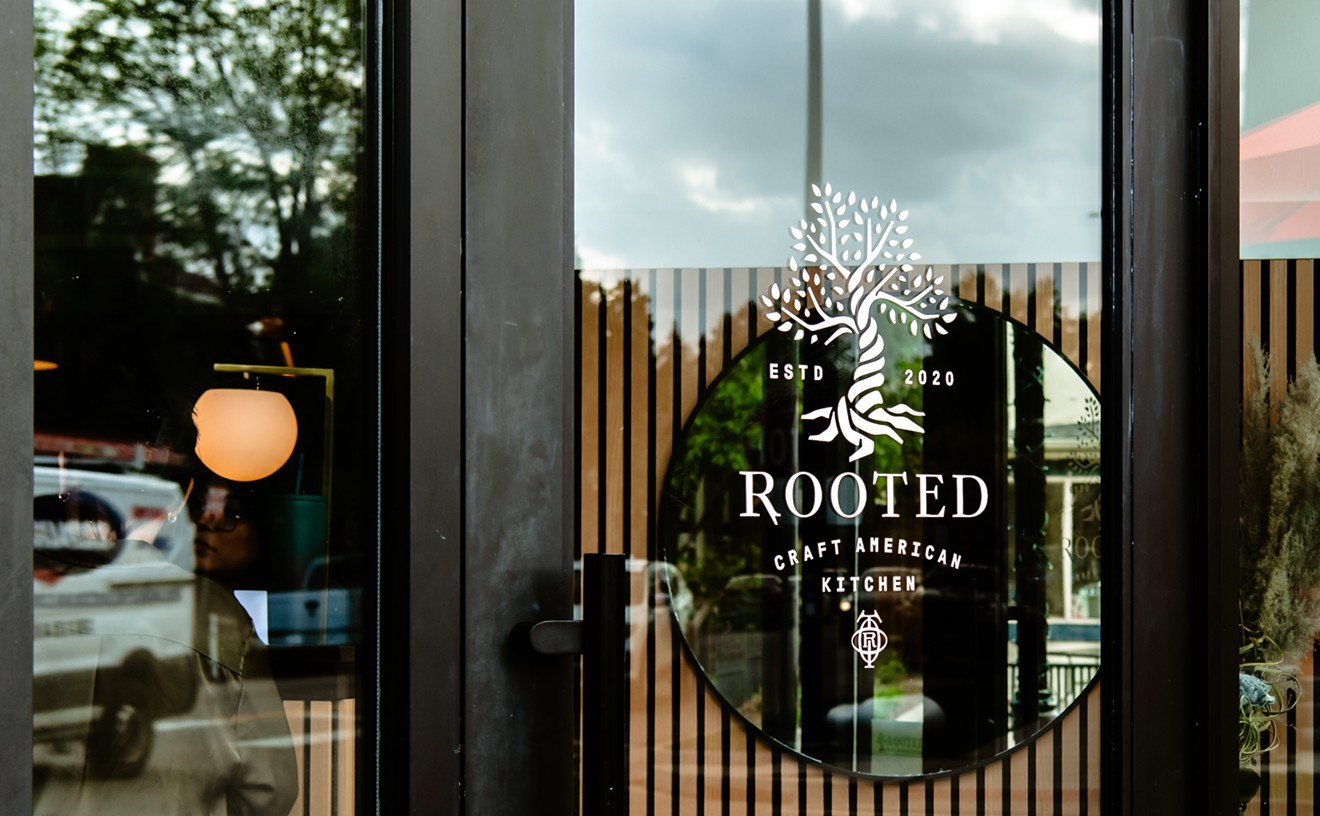Until now. Thanks to the relentless zeal and/or fiscal concerns of director Julien Temple, a new Sex Pistols movie has arrived. The Filth and the Fury traces the band's brief, explosive existence with the comprehensive clarity only hindsight can provide. The Clash may have written better songs, and the Damned may still exist, but this short-lived experimental combo was the first to spank the Queen's arse with a crude paddle of anarchy. They also made it trendy for unhappy youths around the globe to behave, look and sound like absolute hell. This is their story.
In our present bright, enlightened day and age, it would be easy to dismiss punk rock as an irrelevant footnote in the history of music: Does it even make sense anymore, a punk CD competing with the cell phone in your SUV or the World Wide Web on your laptop? In order to get to the heart of matter, Temple takes us to the miasmal slums of mid-'70s London, where a garbage strike frames every riot and upheaval with piles of trash and dead rats while confused hippies and vicious racists stumble through the mess. Then he takes us back even further , introducing us to the cherubic faces of young Steve Jones, Paul Cook, Glen Matlock and Johnny Rotten (né Lydon), who soon grow up to become enraged, disenfranchised teens.
Thanks (or, more appropriately, no thanks) to the overextended artistic license of Alex Cox's Sid and Nancy and Temple's previous Sex Pistols outing, The Great Rock 'n' Roll Swindle (the latter being presented from the perspective of the group's ego-mad manager, Malcolm McLaren), great inconsistencies and sad misapprehensions have dogged the Sex Pistols. In 1996 they sought closure through a reunion concert, which answered few questions. Here, for the first time, we get all the cards laid faceup, a fiercely entertaining montage of performance, rehearsal and interview material (much of it newly culled from the vaults) jumbled with found footage, hilarious clips of musical contemporaries and bombastic media coverage. The result is guaranteed to delight fans while also amusing the pants off the uninitiated.
One could actively loathe the Sex Pistols and still giggle in fits at this time capsule of '70s grooming and apparel. On the surface, The Filth and the Fury is very, very flashy, immersing the viewer in the period until it's easy to forget what year it is outside. It's undeniably startling to see Marc Bolan (languidly lisping that punk is "related to violence in the mind, not the body"), a dewy Brian Ferry, and a hale and hearty Freddy Mercury, summing up an era before every male was required to wear a Van Dyke and sing like a hair dryer. It's also a treat to gaze upon Sting, Billy Idol, Siouxsie Sioux and Shane MacGowan as fresh-faced juvenile delinquents.
To think that we endured Journey while this much fun was being had over there. "Fun" might seem like an odd word to associate with the Sex Pistols, but Temple and editor Niven Howie make a strong case for it being the prime directive of the group, at least initially. After taking form via McLaren's fetishwear shop, SEX, with Rotten auditioning for Cook and Jones by singing along to Alice Cooper on the jukebox, the Sex Pistols begin their 26-month career by playing a truncated opening set for Bazooka Joe, a group featuring Adam Ant. The show's a dud, but with terrifying swiftness, the boys rise to prominence, fueled by a piss-take attitude and stylistic antipathy. Three record labels, a personnel change (clueless John Ritchie, redubbed "Sid Vicious," steps in for Matlock) and a few massive singles later (including, of course, "Anarchy in the U.K." and "God Save the Queen," both brilliantly depicted), and the fun has reached a fever pitch, with the Pistols being arrested, attacked and even banned from punk festivals, where the DIY styles they pioneered have become rote.
The Filth and the Fury is really about stripping away the cartoon to discover friendship, partnership and trust, and what happens when all three are violated. The original members share their present-day insights in tasteful silhouette from their homes in Los Angeles, and a lengthy interview with Vicious from 1978 completes the set. There's compassion, confusion and several stabs of regret, both professional (McLaren is soundly lambasted) and personal (of groupie/junkie Nancy Spungen, Rotten confesses, "I actually introduced her to Sid, and shame on me!").
By the time they're blasting "No Fun" in San Francisco, at the end of their ruinous American tour, and Vicious is sucked into his ugly spiral with Spungen, it's clear that somehow, the ambition and verve of the young men have been eviscerated and exploited. A surprising poignancy hangs over the proceedings when the punk band falls away, the hyped-up distortions dissolve and the rockers are thrown like bodies from a jammed carnival ride. "The Pistols wasn't about destroying ourselves," Rotten/Lydon has commented since. "It was about destroying a situation that was destroying us." Emerging from Temple's trashy and soulful film, one ponders how close the antidote is to the poison -- and how tricky it can be to tell them apart.










